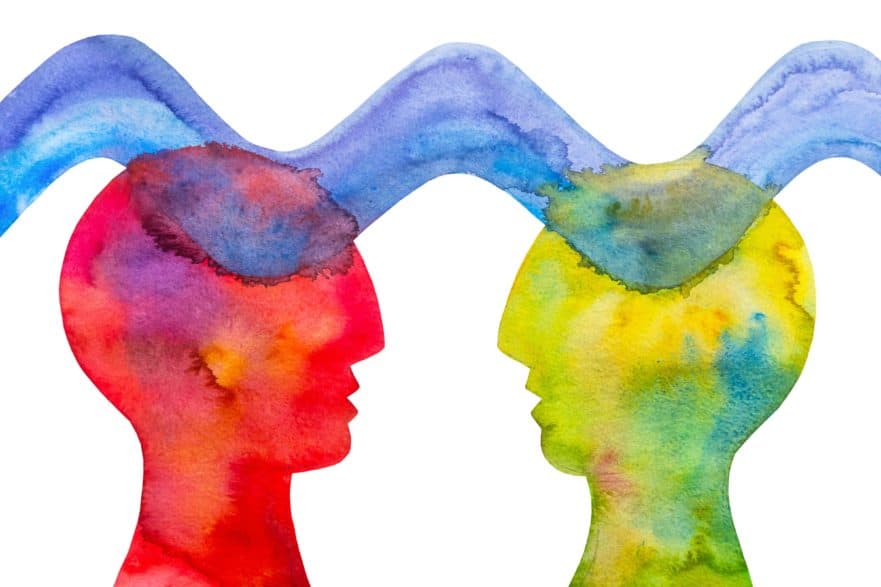In our modern society, most of us can’t get through the day without a certain amount of stress. Between the demands of school, jobs, family and other factors, most Americans consistently deal with moderate to significant levels of stress. While stress in moderation may actually be good for us, in excessive amounts it can cause anxiety, depression and a wide range of health issues.
While we can’t remove stress from our lives entirely, we can train our minds and bodies to manage it more constructively. This is where biofeedback comes in to help. Biofeedback therapy offers us a set of tools to identify how our bodies respond to stress in real time, enabling us to learn techniques to reduce those effects.
The Rise of Stress in Our Culture
Despite skeptics who might try to downplay the problem, research by the American Psychological Association shows that stress is on the rise in America, often to dangerous levels. Consider the following:
- As many as one-third of Americans are living under extreme levels of stress.
- Approximately 44 percent of Americans have experienced a significant increase in stress within the past five years.
- Common sources of stress include worries about money, demands at work, family responsibilities and relationships—most of which are legitimate and unavoidable issues. (Translation—we can’t remove these stress triggers because they are necessary parts of life.)
- Children are also experiencing greater levels of stress. Nearly one-third of children surveyed reported at least one health symptom related to stress within the past month.
- Parents’ stress is rubbing off on the children. Up to 85 percent of children and teenagers indicated they feel the effects of their parents’ stress.
How Stress Affects Us Negatively
In order to understand how biofeedback works, it’s important to understand the relationship between stress and the human body. Our mind identifies and interprets stressors, and our body responds by releasing hormones that affect the body in various ways.
For example, if you’re someone who feels most stressed at work, you might see your boss first thing in the morning and notice your neck and shoulder muscles tense up, your heart rate skyrocket, and your breathing become shallow. This is the mind-body connection in action, and biofeedback gives you a chance to see firsthand what’s happening in your body.
Looking For Therapy?
Start Healing Today.
212-960-8626
How Biofeedback Therapy Can Help
Like most bodily functions, our brains control how we respond to stress. Some of our brain functions are cognitive—for example, we control the movements of our hands and feet, or the words we speak. Other functions, like breathing, heartbeat and perspiration, occur involuntarily and automatically through our central nervous system. It is in this involuntary realm that most of our stress reactions occur. When we become stressed, our heart rate increases, our breathing becomes faster and shallow, our blood pressure increases, our muscles tighten, we start to sweat, etc.—all occurring in the background.
During your biofeedback sessions, you will learn techniques to reduce your body stress response. Biofeedback is a technique by which we can bridge the gap between cognitive and involuntary bodily functions, training our bodies to respond differently to stress. During a biofeedback therapy session, you’re connected to sensors (often attached to the fingertips) that measure these bodily functions and present them on a screen graphically.
Research shows that when we can visualize these reactions to stress, we can begin training ourselves in techniques to change these reactions. For example, when we see our increased respiration on a screen, we can learn deep breathing techniques to slow down our breathing rates. When the screen tells us our muscles are tightening, we can purposefully relax those muscles. Over time, we can learn to slow our heart rate and reduce perspiration using these techniques.
During your biofeedback sessions at Manhattan Mental Health Counseling, you will play fun video games, including a jet-ski racing game, and other intense games designed to train you to stay calm under pressure. We also use games that immerse you in beautiful environments that can help you quickly achieve a relaxed state.
Biofeedback therapy has given us a powerful weapon against the enemy of chronic stress. At Manhattan Mental Health Counseling, we have therapists specifically trained in biofeedback techniques for patients who wish to reduce the effects of severe stress. To learn more take a look at our Biofeedback Therapy service page or call our offices today.

